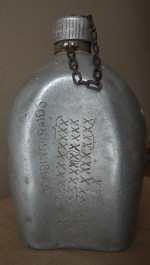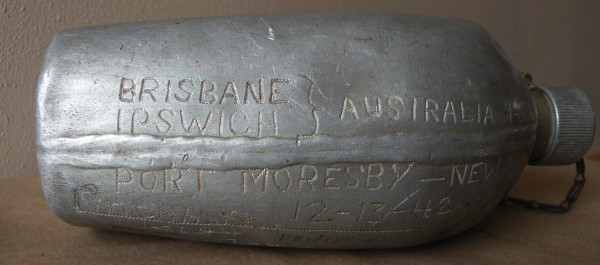In the November 2008 and January 2009 issues of World War II magazine, as part of our exploration into what will be lost when those who witnessed history are no longer able to share their memories, we asked readers to share the stories they had heard from someone who served in the war. The responses flooded in–and we have published a selection of them below. Chime in with your own loved ones’ World War II memories in the comments.
My father-in-law served in the U.S. Navy during World War II. His name was Jamie Dreyer, called Jim by all. He passed away a few years ago and we miss him. My wife and I often visited with her parents and Jim and I often played cribbage, while Valerie and her mom talked in another room.
One day, Jim started talking about his time in the South Pacific during the war. He said that he was in photo recon, and would be flown over Japanese-held islands in a stripped-down B-26. He would lean out and take pictures as the pilot would fly back and forth until he had enough photos to make a complete picture of the island. While looking through the viewfinder of his camera, he often saw the faces of Japanese soldiers shooting up at them with their rifles. He could also see tracer bullets coming toward them and it looked like they were all shooting directly at him. Occasionally, he heard the sound of a bullet entering the underside of the fuselage and exiting the top. They could tell if they had a particularly hazardous day by how many rays of sunlight shone through.
On one mission the pilot suddenly put the plane into a steep dive and Jim was concerned as they were headed straight for the island, so he yelled to the pilot, who yelled back, “Not now, Dreyer!” Jim called a couple more times getting the same response. He then saw that the starboard engine was on fire and the pilot was attempting to feather it. Everyone on board waited while the pilot struggled and fortunately succeeded in putting out the fire. The flight back to base was longer than usual on one engine, and scary because they would not have been able to evade enemy planes. Fortunately, they made it back safely.
He told me that the only thing that really scared him was the thought of surviving a crash in enemy-held territory. He had so much information in his head that his orders were to shoot himself with his .45 should he survive, and it gave him nightmares for years.
Jim had a far-away look in his eyes, shook it off, and we continued to play cribbage. He would share other (in my opinion hair-raising) memories with me when he could. I wish I had asked him more questions about his experiences, but he was a proud man and not one to discuss such things unless the time was right. I respected that area of his life and felt special that he thought enough of me to talk about it as much as he did.
On our way home, I told Valerie that it was difficult to picture her dad doing all those things now. She stared at me and said, “My father did those things?” He never told Valerie a thing about his experiences.
Dana Kimball
Weimar, California
—
 My father, Eugene Edward Warren, was a technical sergeant with the 389th Service Squadron, 64th Service Group of the Fifth Air Force. He was an airplane mechanic and served in the South Pacific from 1942 to 1945—arriving in Brisbane, Australia, in September 1942 and transferring to Port Moresby, New Guinea, in December of 1942 where he served until June 1945. His airfield was under constant Japanese bombing raids during these three years.
My father, Eugene Edward Warren, was a technical sergeant with the 389th Service Squadron, 64th Service Group of the Fifth Air Force. He was an airplane mechanic and served in the South Pacific from 1942 to 1945—arriving in Brisbane, Australia, in September 1942 and transferring to Port Moresby, New Guinea, in December of 1942 where he served until June 1945. His airfield was under constant Japanese bombing raids during these three years.
I inherited a valuable keepsake from my Father after his passing in 2001. It is his M-1910 canteen that was more than a canteen for him. As you will see in the photos he used this canteen as a diary of the dates of his various deployments and also as a record of the multiple bombing raids he endured during his deployment in New Guinea. He kept track of the air raids by inscribing an X into the side of the canteen. Xs that are grouped together represent multiple raid nights. The X that is circled was the air raid that “almost got him”.
In addition to being a record of his deployment and the bombings that he endured, it also helped to remind him of home, Manitowoc, Wisconsin, and his sweetheart Betty. On the front side of the canteen he inscribed BETTY and HUEY with a heart pierced with an arrow. He married Betty in 1945 when he returned from overseas.
Robert L. Warren
Germantown, Wisconsin
[continued on next page]





